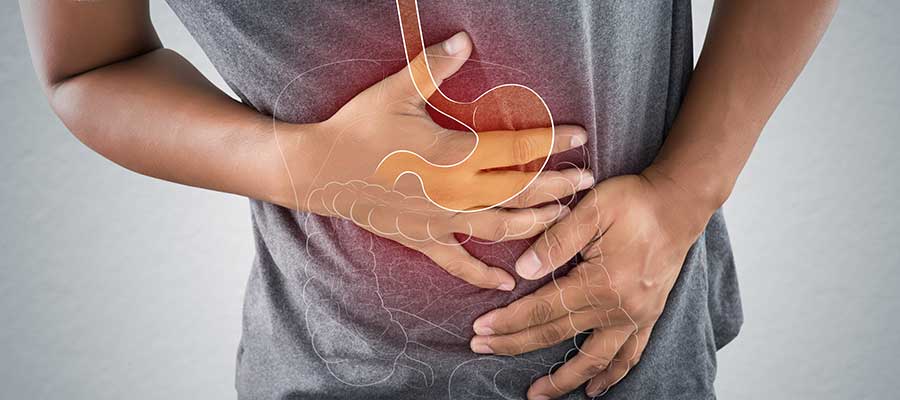Diarrhea is a common ailment that many people experience at some point in their lives. Whether it is a mild problem lasting only a day or a more severe issue requiring medical attention, understanding the causes, symptoms, and treatment options for it is important for maintaining overall health and well-being. In this comprehensive guide, we’ll explore the various aspects of diarrhea covid, from its potential causes to effective treatment methods.
I. Diarrhea Medicine
When it comes to managing it, over-the-counter medications can provide relief from symptoms such as frequent bowel movements and abdominal discomfort. Here are some commonly used medicines for diarrhea covid:
- Loperamide (Imodium): Helps to reduce the frequency of bowel movements and relieve its symptoms.
- Bismuth subsalicylate (Pepto-Bismol): Provides relief from diarrhea, as well as associated symptoms like nausea and indigestion.
- Probiotics: These supplements can help restore the balance of beneficial bacteria in the gut, which may alleviate symptoms.
It is important to consult with a healthcare professional before using any medication, particularly if you have basic health conditions or are taking other medications.
II. Diarrhea covid Causes
Understanding the primary causes is important for effective management. Some common causes include:
- Viral Infections: Viruses such as norovirus and rotavirus can lead to acute loose motions.
- Bacterial Infections: Bacteria like E. coli and salmonella can cause foodborne illnesses.
- Parasitic Infections: Parasites such as Giardia lamblia can lead to prolonged time.
- Food Intolerance: Certain foods or ingredients, such as lactose or gluten, can trigger it in individuals with intolerances.
- Medications: Some medications, particularly antibiotics, can disrupt the natural balance of gut bacteria used.
Identifying the specific cause of diarrhea can help fit treatment and prevention strategies accordingly.
III. Symptoms
Knowing the symptoms of diarrhea covid is necessary for quick intervention. Common symptoms include:
- Frequent Bowel Movements: Passing loose or watery stools more frequently than usual.
- Abdominal Cramps: Experience of discomfort or cramping in the abdominal region.
- Dehydration: Symptoms may include thirst, dry mouth, decreased urine output, and fatigue.
- Fever: In some cases, that may be accompanied by a fever, indicating an underlying infection.
It is essential to keep an eye on these symptoms and seek medical assistance if they get worse or continue to avoid complications related diarrhea covid.
IV. Diarrhea Treatment
Taking care of the underlying cause and controlling symptoms are frequently the main goals of treatment for diarrhea covid. Some effective treatment strategies include:
- Hydration: Drinking plenty of fluids, such as water, electrolyte solutions, and clear broths, helps prevent dehydration.
- Dietary Modifications: Following a bland diet that includes easily digestible foods like bananas, rice, applesauce, and toast (BRAT diet) can help alleviate symptoms.
- Medications: Over-the-counter medications such as loperamide and bismuth subsalicylate can provide relief from diarrhea covid symptoms.
- Probiotics: Supplements containing beneficial bacteria may help restore gut health and alleviate loose motions.
- Antibiotics: In cases of bacterial infections, antibiotics may be prescribed to eliminate the underlying cause of loose motions.
It is important to follow healthcare provider recommendations and avoid self-medicating, especially in cases of severe or persistent condition.
V. Diarrhea and Nausea
Its frequently occurs with nausea, particularly in situations of gastrointestinal illnesses. Nausea and diarrhea together can have a serious negative influence on everyday activities and quality of life. Similar tactics to those used to treat that disease are frequently used to treat nausea as well, including drinking plenty of water, eating bland meals, and, if needed, taking anti-nausea drugs.

VI. Diarrhea covid for a Week
Experiencing it for more than a week can indicate an underlying medical condition or infection that requires medical attention. Chronic diarrhea covid can lead to dehydration, electrolyte imbalances, and nutritional deficiencies if left untreated. It is necessary to consult a healthcare professional for proper assessment and management of prolonged time.
VII. Diarrhea After Eating
That also occurs shortly after eating may be due to various factors, including food poisoning, food intolerances, or gastrointestinal disorders such as irritable bowel syndrome (IBS). Keeping a food diary and identifying trigger foods can help manage it after eating. Seeking medical advice may be necessary to determine the underlying cause and develop an appropriate treatment plan.
VIII. Diarrhea ICD 10
In medical coding, that is classified using the International Classification of Diseases, 10th Revision (ICD-10). The specific code assigned depends on factors such as the cause, duration, and severity of motions. Healthcare providers use these codes for accurate documentation and billing purposes, facilitating communication among healthcare professionals and insurers.
IX. Diarrhea and Vomiting
Diarrhea and vomiting often occur together, particularly during gastrointestinal infections or food poisoning. This combination can lead to rapid fluid loss and dehydration, requiring prompt medical attention. Treatment may include fluid replacement, antiemetic medications to control vomiting, and supportive care to manage symptoms and prevent complications.
X. Diarrhea in Dogs
Like people, dogs can get diarrhea covid for a variety of reasons, including improper food, infections, or underlying medical issues. When your dog has effected, it is critical to keep a close eye on their health, make sure they drink plenty of water, and seek veterinary advice if the symptoms worsen or persist. Medication, supportive care, and dietary changes are possible treatments for canine type.
XI. Diarrhea for 3 Days
Experiencing it for three days or more warrants medical evaluation, as it may indicate a more serious underlying condition. Persistent loose motions can lead to dehydration, electrolyte imbalances, and complications if left untreated. Healthcare providers can perform diagnostic tests to determine the cause of prolonged time and recommend appropriate treatment.
XII. Diarrhea COVID
One of the signs of COVID-19, the respiratory disease brought on by the new coronavirus, is diarrhea. Gastrointestinal symptoms like diarrhea may arise, particularly in milder cases, although respiratory symptoms like cough and shortness of breath are more common. Keeping an eye on symptoms and following to public health recommendations are crucial in stopping the spread of COVID-19..
XIII. Diarrhea covid Song
While it is a serious health concern, humorous songs and rhymes about it exist in popular culture. These songs often employ humor to lighten the mood surrounding an otherwise uncomfortable topic. However, it’s important to prioritize accurate information and appropriate medical care when addressing loose motions and related health issues.
XIV. Diarrhea While Pregnant
It can occur in pregnant women as a result of hormonal fluctuations, nutritional changes, or gastrointestinal illnesses. Pregnancy-related diarrhea can put the developing fetus and the mom at risk for dehydration. Drink plenty of water, eat a healthy diet, and get medical help if your loose motions does not go away or if it is accompanied by other alarming symptoms.
XV. Early Pregnancy
Some individuals may experience as an early sign of pregnancy, along with other symptoms such as nausea, fatigue, and breast tenderness. Hormonal changes and increased progesterone levels can affect gastrointestinal motility, leading to that disease in early pregnancy. While mild diarrhea covid is common, severe or persistent symptoms.
Guidelines Table:
Sure, here’s a table outlining common causes diarrhea covid and precautions to prevent it:
| Causes | Precautions |
|---|---|
| Bacterial Infections (e.g., E. coli, Salmonella) | Practice good hygiene: Wash hands before eating, cook food thoroughly, drink clean water. |
| Viral Infections (e.g., norovirus, rotavirus) | Wash hands frequently, avoid close contact with sick individuals, disinfect commonly touched surfaces. |
| Parasitic Infections (e.g., Giardia, Cryptosporidium) | Avoid drinking untreated water from lakes or streams, practice proper hygiene when handling pets. |
| Food Poisoning (e.g., contaminated food) | Ensure food is stored and cooked at proper temperatures, avoid eating raw or undercooked foods. |
| Traveler’s Diarrhea | Drink bottled or boiled water, avoid consuming uncooked fruits and vegetables, be cautious with street food. |
| Medication side effects | Take medications as directed by a healthcare provider, report any unusual symptoms to a doctor. |
| Food intolerances (e.g., lactose intolerance) | Avoid foods that trigger symptoms, consider dietary modifications or supplements as advised by a healthcare provider. |
| Stress or Anxiety | Practice stress management techniques such as exercise, meditation, or therapy. |
| Irritable Bowel Syndrome (IBS) | Maintain a balanced diet, identify and avoid trigger foods, manage stress levels. |
| Chronic diseases (e.g., Crohn’s disease, ulcerative colitis) | Follow treatment plans prescribed by healthcare providers, monitor symptoms closely. |
Remember, it’s essential to consult with a healthcare professional for proper diagnosis and treatment if you experience persistent or severe.
FAQS
1. What is watery Diarrhea, a sign of?
Watery diarrhea is often a sign of gastrointestinal infection, typically caused by bacteria, viruses, or parasites.
2. Can Diarrhea cause dehydration?
Yes, it can cause dehydration, especially if it persists for a prolonged period or is severe, as it leads to excessive fluid loss from the body.
3. What Diarrhea medicine is safe for dogs?
Plain canned pumpkin or probiotics specifically formulated for dogs are often considered safe and effective remedies for dogs, but consulting a veterinarian is recommended.
4. Which Diarrhea medicine is best?
The best medicine depends on the underlying cause of that disease and should be determined by a healthcare professional after proper diagnosis.
5. Who Diarrhea in children?
Diarrhea in children can be caused by various factors including infections, food intolerances, dietary changes, or underlying medical conditions, and it’s important for parents to seek medical advice if it persists or is accompanied by other concerning symptoms.



